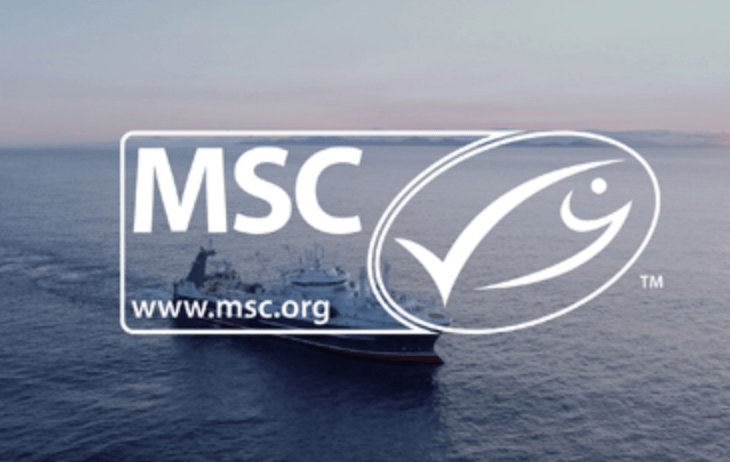28 de marzo de 2024

Author——————————-
Steven Adolf

Senior Consultant – Sustainable Fisheries and Ocean Management
Author of “Tuna Wars”
✉️
The Marine Stewardship Council (MSC) is the most reliable certification organization when it comes to setting a standard for sustainable fisheries and a sustainable supply chain. But with the recent postponement of a number of announced measures around the new Standard 3.0 and harvest strategies, the certification body seems to have crossed the boundaries of transparent and inclusive management of fishery stocks. The review and delay of new fishery standards has resulted in a confusing patchwork of measures and timelines where even specialists like the certifiers and certified stakeholders seem to be lost in translation. But what really pushes the certification beyond its limits is the unilateral decision to leave out the usual consultation of all stakeholders. This undermines an essential part that brings trust and independence for the MSC certification and fails to advance the implementation of the substantive policy improvements intended under Standard 3.0. It raises the question whether the MSC certification must rethink its use as an effective tool to guarantee its Principle 1 of sustainable management of the fisheries, in particular on harvest strategies.
In an announcement on its website on January 31st, MSC published a set of delays of its new Standard 3.0. ‘We desperately need a MSC for Dummies to really understand it’, commented a market stakeholder and well-informed frontrunner on sustainable tuna management. ‘This is getting very complicated’, another specialist commented. Precisely at a time when sustainability policies need to be adapted to clarify the rapidly changing demands and requirements in the sector, MSC certification is taking a course that is difficult to follow, even for specialists who are directly involved.
According to the announcement, MSC has delayed the implementation of the long-awaited Standard version 3.0, that went into force in May 2023, for 2-3 years. According to MSC: ‘We have engaged in an intensive roll-out program, testing the new requirements with fisheries and gathering extensive feedback from independent assessors and fishery partners at workshops held around the world. This process has highlighted areas that need to be amended.’
It remains a matter of conjecture what exactly the problems were, or the scope of the issues, or how the MSC will ‘fix’ them, but the shortcomings were serious enough to warrant a postponement of the new standard. On the other hand, being ‘non-substantive changes’, the issues apparently were not that serious to involve other stakeholders in another public consultation process. According to MSC that would only cause more delay.
But the ‘no more delay’ argument seems to evaporate in the rest of the course of events. The derogation of the Standard 3.0 started in February 2024, and the release of an updated standard that will address immediate concerns is planned for July 2024. The old Standard 2.0 can be used another two years until February 1, 2026 for new fisheries, while existing fisheries have until 1 November 2030 for the update to Standard 3.0. This also extends the harvest strategy development and implementation deadlines for both new and currently certified fisheries, delaying some of the improvements of new standard and potentially leading to a loss of motivation to make progress on harvest strategies at the regional fisheries management organizations (RFMOs).
The process of developing Standard 3.0 was long and difficult and involved lots of fighting and mixed reaction, especially in the Western and Central Pacific Ocean (WCPO). This was in part due to the addition of so-called Section SE for RFMO-managed fisheries, which sets 5-year versus 10-year timelines for harvest strategies development that nobody is entirely sure how to interpret. But these can be considered political trade-offs for a reform of the standard that in the end enhances the implementation of harvest strategies in RFMOs, a key tool to bring fisheries management to a state-of-the-art level. By nature, this is not only a complicated technical process, but also part of ‘Tuna Wars’: important conflicting global interests of the involved stakeholders. Approximately 60 percent of the world supply of skipjack, yellowfin, bigeye and albacore is caught in this part of the Pacific. And a substantial portion is MSC certified. This multi-billion market accounts for 43 fisheries including powerful stakeholders on a global scale like the Parties to the Nauru Agreement (PNA) – the tuna power bloc of seven Island States in the WCPO – and Tri Marine, AGAC, Silla, and PNG FIA. In the last decade, the WCPO tuna fishery was the fastest expanding in MSC certification.
Within such a complex context, it is important that the final outcome of a revision of the MSC standard is supported by stakeholders, whether they represent the coastal states, fisheries, trade, science or NGOs. You don’t necessarily have to agree with the overall end-result if you know that your objections and suggestions have been heard and balanced with those of other stakeholders. A traditionally transparent and accountable consultation process is perhaps the most important reason why MSC can be considered a benchmark of sustainability certification.
And yet precisely this part of the process is being skipped in the new revision and delay for the introduction of the very important Standard 3.0. The concerns that had apparently arisen with the ‘independent assessors and fishery partners’ remain an enigma to other stakeholders. In particular, MSC should be extremely cautious to create an impression of a closed meeting that leaves the decision in the hands of fisheries interests. Possible time savings do not outweigh the breaking of one of the principles that form the backbone of confidence in the certification, a confidence that has been waning in recent years. Maybe the amendments on Version 3.0 that are now discussed can bring some simplicity in the current situation around the harvest strategy implementation, but there is no indication that the revision will touch Section SE. Regardless, it comes at too high a price.
The course of events surrounding the new standard and harvest strategies also means that a deeper, fundamental question must be asked. Up to what point can the MSC certification be a useful, transparent and inclusive instrument and indicator of progress and change toward more sustainable fisheries? MSC is meant to be a tool to serve the Theory of Change, using market demand to steer the management of fisheries into progress for a sustainable future. The Standard is supposed to work as an incentive to bring fishing into more sustainable waters instead of creating a maze of regulations in which even relatively well-managed fisheries become entangled in complex conditions, arbitrary time frames and non-transparent delays.
MSC is treading on dangerous ground for its credibility by taking unilateral action without proper stakeholder engagement, in combination with delaying essential parts of the Standard 3.0. That can never be the intention of a certification that claims to advance the proper introduction of harvest strategies. It’s a good moment to reconsider.
Steven Adolf is a researcher and consultant regarding sustainable fisheries, and author of ‘Tuna Wars’, www.tunawars.net.